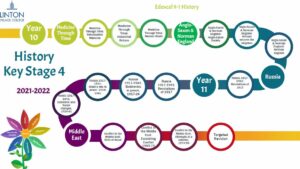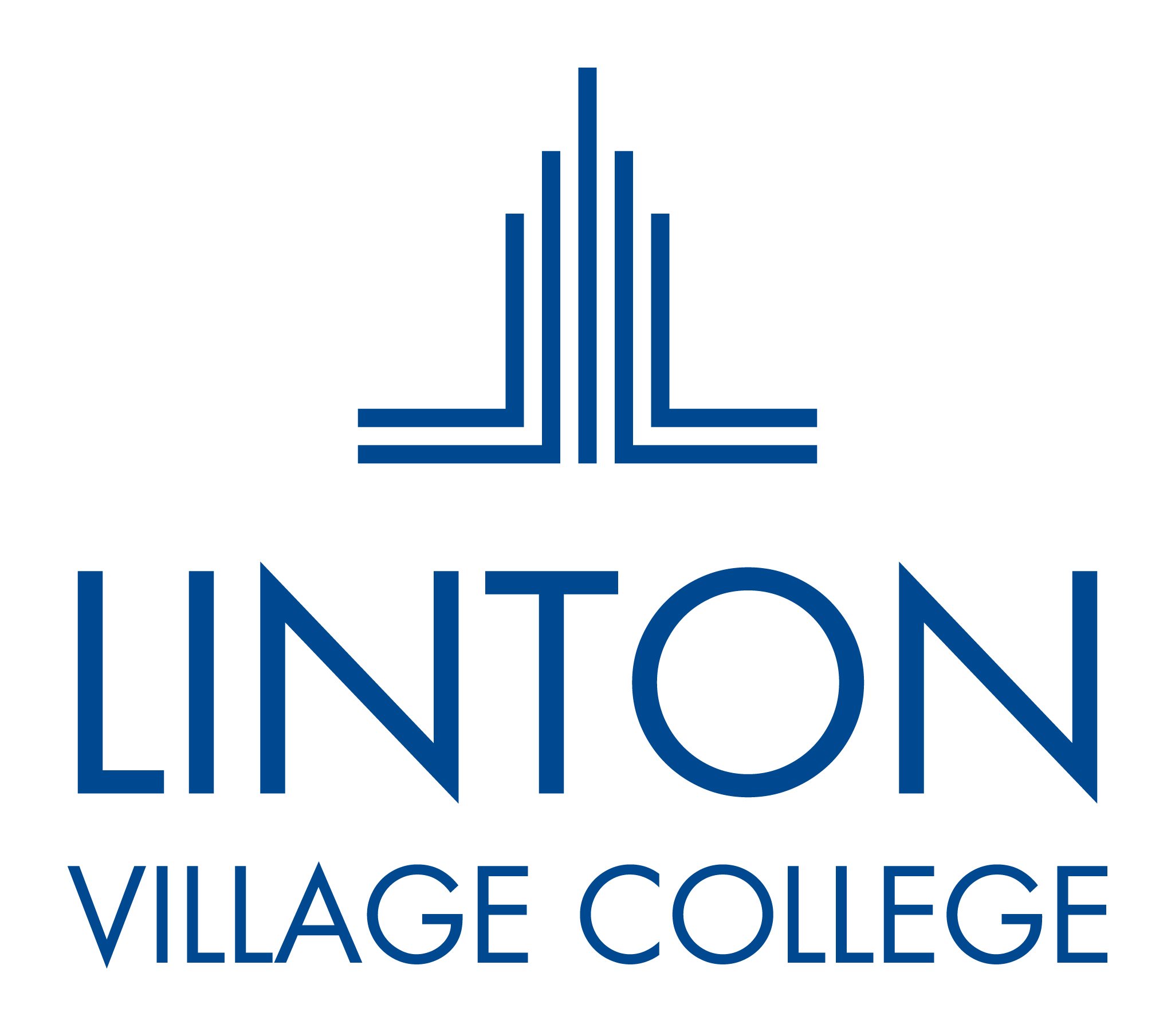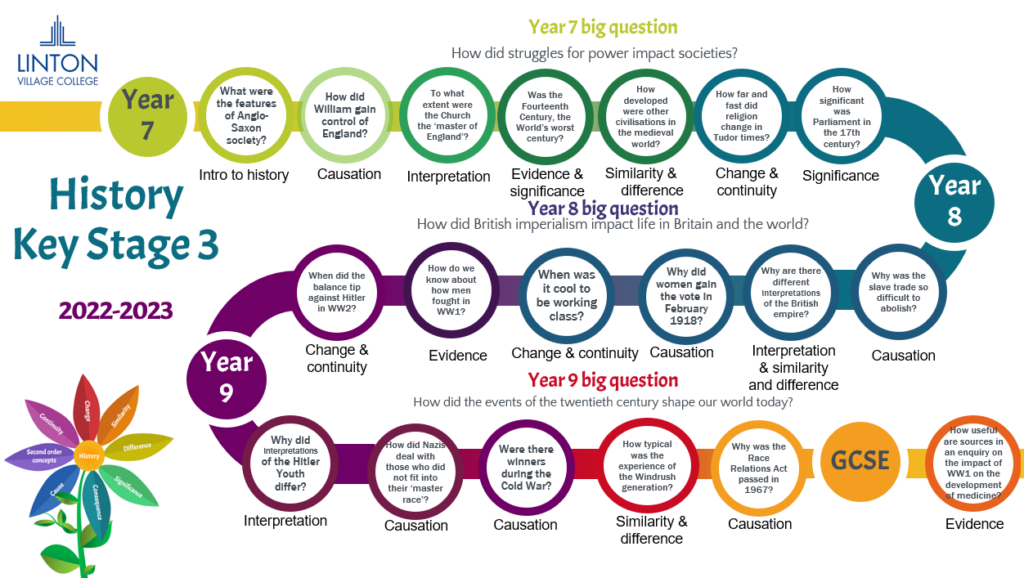History
Ethos and Aims
The intention of the History curriculum is to develop students’ knowledge and understanding of how and why our society has changed over time and Britain’s relationship with the rest of the world. By doing so, students will develop their own understanding of how History has shaped their own identities and that of others. Students are challenged to build a rich understanding of the past and interweave this knowledge to analyse change and continuity over time. Students are encouraged to be curious, independent learners who are eager to grow their extended writing and reading skills which will allow progress in History and across the wider curriculum. Lessons aim to be rigorous, challenging, fun and accessible to all.
KS3 Curriculum Content
The Key Stage 3 curriculum is developed over three years with three hours of taught content per fortnight. The KS3 curriculum starts with British History and our national story and widens in Years 8 and 9 to more unfamiliar contexts. The Year 7 curriculum starts with Britain and particular focus on the monarchy, the growth of parliament and the franchise. In Year 8 the curriculum widens to examine topics such as Britain’s emergence as an imperial power and how events such as the Slave Trade and its legacies have continued to shape British life and identities. Year 9 widens students’ study still further to include topics such as the Holocaust, the emergence of a post imperial Britain during the Cold War world and how these events have shaped the identities and values of modern-day Britain in relation to the wider world. This increasingly wide focus of the curriculum, from Year 7 to Year 9, is designed to challenge students to compare and contrast and examine historical events in an increasingly more nuanced, sophisticated and critical manner.
By the time they complete KS3, all students will have accessed a challenging curriculum that provides them with a body of knowledge and cultural capital that they can apply throughout life beyond school. The KS3 curriculum broadly follows a chronological narrative and topics are studied through enquiry-based approaches through the second order concepts of chronology, cause and consequence, diversity, evidence, interpretations, change and continuity and significance. This rationale underpins the department’s schemes of learning. These schemes are designed to encourage students to analyse and evaluate sources of evidence and knowledge in an information rich age where it is more important than ever to identify truth from lies and facts from fake news. Throughout the curriculum there is a systematic approach to building a rich literacy in students that supports their ability to analyse and evaluate evidence and historical events both in isolation and in context.
KS4 Curriculum Content
Students study Pearson Edexcel Level 1/Level 2 GCSE (9-1) in History (1HI0). The Key Stage 4 curriculum is developed over two years with five hours of taught content per fortnight.
At KS4, the chosen topics at GCSE (Edexcel) are, on the whole, different to those studied at KS3. The rationale behind this approach is to continue to widen students’ knowledge of the wider world and different contexts. This choice enables students to study new topics supported by the second order concepts and skills they have already acquired at KS3. The content is also chosen to provoke challenging thinking in the students; for example, the ‘Anglo Saxon and Norman England’ unit is a British unit but provides rich opportunities to compare and contrast the nature of both real and imagined power with the ‘Russia 1917-1941’ unit. At the same time the ‘Conflict in the Middle East 1945-95’ unit examines a conflict that has ongoing consequences for our current political world order. The ‘Medicine through Time’ element further develops understanding of change and continuity over time and focusses on the local depth study of the historic environment of WW1. This KS4 curriculum is partly designed to equip those students who choose to study A level history with the essential skills and not be intimidated by the new topics they will study at post-16. The course, however, is primarily designed to inspire ALL students to passionately argue, or at least understand and appreciate, the relevance of historical study in understanding the world today and how it shapes peoples’ motives, values and identities.

GCSE History Pearson Edexcel Specification:
Enrichment/Extra Curricular Opportunities
The department runs a highly successful WW1 battlefields trip to France and Belgium for students in Years 9/10. This enhances the History curriculum at Key Stage 3 and 4.


